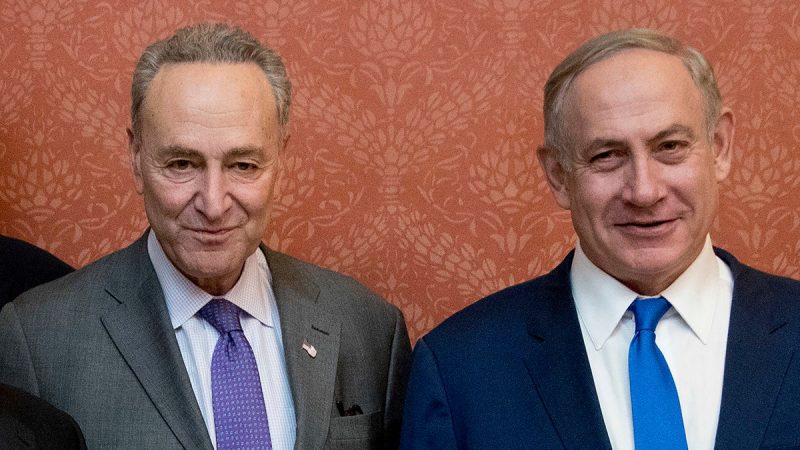Schumer’s Anti-Netanyahu Speech Strengthens Bibi in Israel’s War to Defeat Hamas
In a surprising turn of events, Senator Chuck Schumer’s recent anti-Netanyahu speech has become a rallying cry for Prime Minister Benjamin Netanyahu in Israel’s ongoing battle to defeat Hamas. Schumer’s criticisms of Netanyahu, normally seen as a setback for the Israeli leader, have instead strengthened his position in the eyes of many Israelis.
One of the key reasons why Schumer’s speech has had this unexpected effect is the timing of his comments. Coming at a critical juncture in the conflict between Israel and Hamas, Schumer’s words inadvertently aligned with Netanyahu’s messaging and strategies. As Israel faced relentless rocket attacks from Hamas and increasing international pressure, Schumer’s criticism created a sense of unity among Israelis, with many seeing Netanyahu as the unwavering leader they need in these trying times.
Furthermore, Schumer’s stance has inadvertently painted Netanyahu as a defender of Israeli sovereignty and security. By challenging Netanyahu’s policies, Schumer unintentionally highlighted the stark reality that Israel faces existential threats from groups like Hamas. This reinforcement of the narrative of Israel’s right to self-defense has resonated with many Israelis who view Netanyahu as the strongman capable of protecting their interests.
Another crucial aspect that has worked in Netanyahu’s favor is the perception of foreign interference in Israeli affairs. Schumer’s speech, perceived by many as meddling in Israeli politics, has sparked a sense of nationalism and unity among Israelis. Netanyahu, known for his strong stance against external pressures, has skillfully used Schumer’s comments to portray himself as the only leader capable of standing up to such interference and safeguarding Israel’s interests.
Moreover, Schumer’s criticism has inadvertently shifted the focus away from internal divisions within Israel and towards a united front against external threats. Netanyahu has been quick to capitalize on this shift, framing himself as the unifying figure needed to guide Israel through these challenging times. By positioning himself as the defender of Israeli interests in the face of international criticism, Netanyahu has bolstered his image as a strong and reliable leader.
In conclusion, Schumer’s unintended consequences have only served to reinforce Netanyahu’s position in Israel’s ongoing conflict with Hamas. By challenging Netanyahu at a critical moment, Schumer inadvertently played into Netanyahu’s hands, strengthening his image as the defender of Israel’s sovereignty and security. As the conflict continues to unfold, Netanyahu’s strategic response to Schumer’s criticism serves as a reminder of his political acumen and ability to navigate complex geopolitical challenges.

